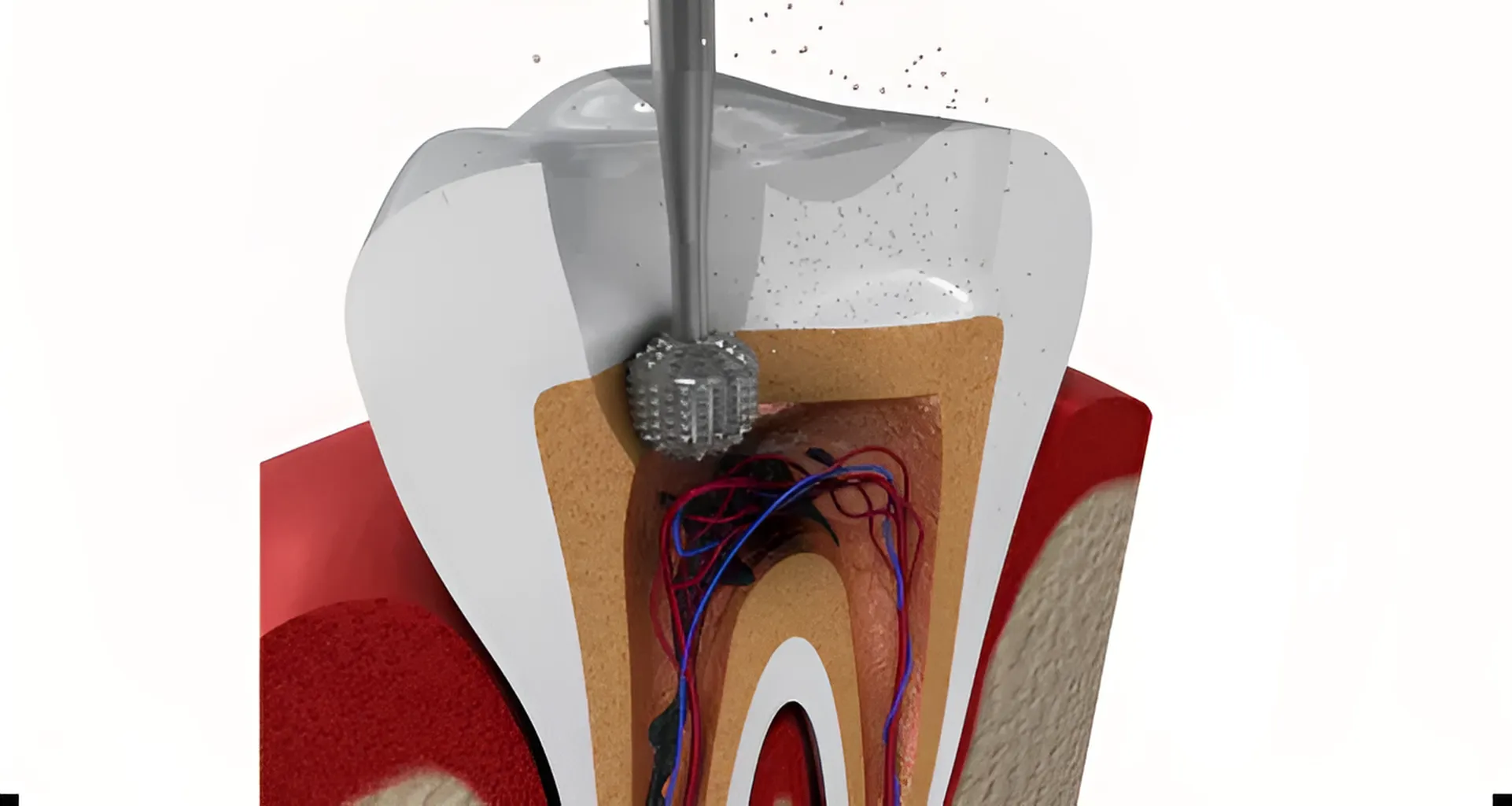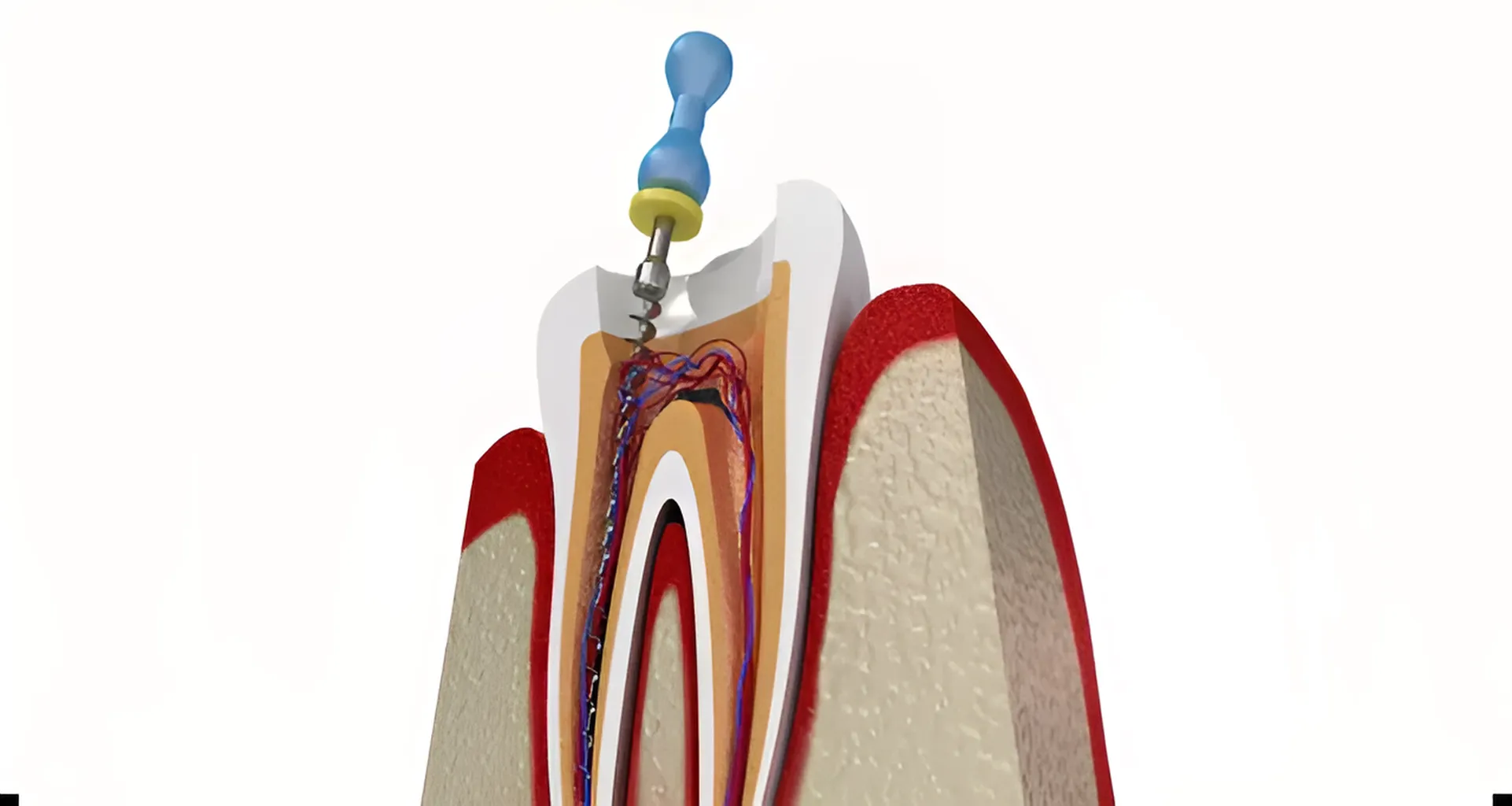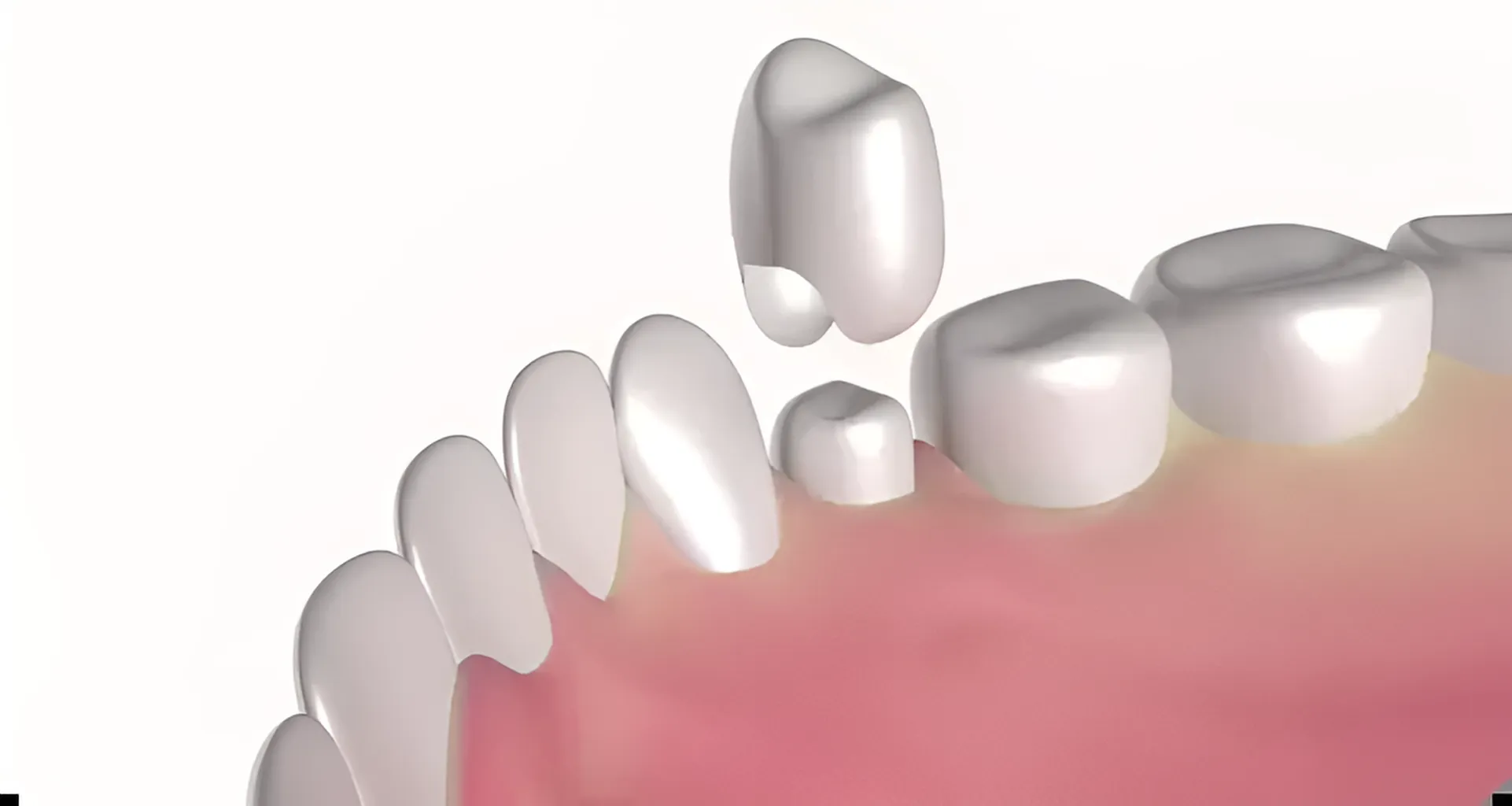Root Canal Treatment
Our advanced root canal treatments offer a pain-free, lasting solution to save damaged teeth and restore your smile.
A root canal is a procedure to treat infection at the root of a tooth. It’s a common treatment that can relieve pain and save a tooth that might otherwise need to be removed. By cleaning the infected area, removing decay, and sealing the tooth, a root canal restores the health and function of the tooth, helping to maintain your natural smile.
Benefits of Root Canal Treatment
Pain Relief
Alleviates intense toothache caused by infection or decay.
Preserves Natural Tooth
Avoids the need for extraction, helping you retain your natural smile.
Enhanced Oral Health
Prevents the spread of infection to surrounding teeth and gums.
Restores Function
Allows you to chew and bite comfortably with the treated tooth.
What to Expect During a Root Canal
Initial Consultation and Examination
We start with a thorough examination and an X-ray to evaluate the extent of infection and decide on the best course of action.Local Anesthesia
The treatment area is numbed to ensure a comfortable experience. Many patients report little to no pain during the procedure.Removal of Infected Pulp
A small opening is made in the tooth to access the pulp chamber and root canals. The infected pulp is removed, and the inside of the tooth is cleaned and disinfected.Filling and Sealing
The cleaned canals are filled with a biocompatible material called gutta-percha and then sealed to prevent reinfection.Final Restoration
A crown or filling is placed on the tooth to restore its structure and function, ensuring it blends naturally with your other teeth.
Signs You May Need a Root Canal Treatment
- Persistent or severe toothache
- Lingering sensitivity to hot or cold
- Swelling or tenderness around the gums or jaw
- Tooth discoloration
- Tender gums or pus near the tooth
Frequently Asked Questions
Modern root canal treatments are performed with anesthetics to ensure a pain-free experience. Most patients feel relieved from pain rather than experiencing discomfort.
The entire process typically takes 1 to 2 hours. If a crown is needed, a follow-up appointment will be scheduled.
Aftercare instructions will be provided. You may feel some post-treatment sensitivity, which is normal and manageable with prescribed medication.
While rare, re-infection can occur. Proper oral hygiene and regular check-ups minimize this risk.




